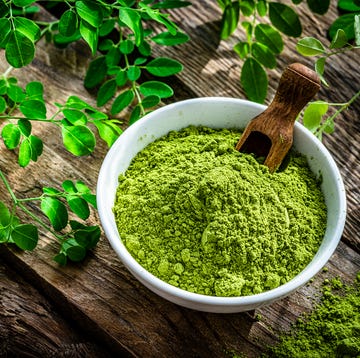- A new study found that people called “SuperAgers” often maintain strong social connections.
- Research revealed these adults had thicker cortexes, larger memory-related neurons, and resilience against typical Alzheimer’s-related proteins.
- Other lifestyle factors weren’t consistent predictors, suggesting that social engagement and hobbies may be the real key to protecting memory.
Frequently interacting with friends and partaking in meaningful activities could make you more resistant to age-related memory loss, according to a study at Northwestern University. In fact, the study in Alzheimer’s & Dementia found that some people who were age 80 or older had the same memory capacity as someone 30 years younger. The researchers refer to these folks as "SuperAgers."
“The point of the study was to see how some people are protected from typical age-related decline and the typical age-related changes that accompany it,” says clinical neuropsychologist Tamar Gefen, Ph.D., one of the study’s co-authors and an associate professor at the Mesulam Institute for Cognitive Neurology and Alzheimer’s Disease at Northwestern’s Feinberg School of Medicine.
While Gefen says she initially anticipated some subjects were going to be uniquely different and sharper than their same-age peers, she wasn’t sure by how much. “It went above and beyond expectations,” she says. “Some SuperAgers who were 85 years-old had brains that looked better than people in their thirties.”
While there’s no definitive reason why SuperAgers demonstrated an exceptional ability to remember things through delayed word recall testing, the scientists did find some other commonalities beside their tendency to be more socially active and extroverted. Keep reading to learn more surprising findings the researchers uncovered.
What scientists discovered in the brains of SuperAgers
The results come from a long-term study which began in 2000. Over the course of 25 years, 290 super-agers took part in the study. Besides scoring the subjects on their word recall abilities, researchers also made some distinct discoveries about their minds by conducting autopsies on 79 donated brains.
Seemingly neutral amyloid and tau proteins
Through this method, the researchers found some of the SuperAgers’ brains contained amyloid and tau proteins, also called plaques and tangles, which are known to play crucial roles in the progression of Alzheimer’s disease, while others didn’t develop any. What's interesting is the SuperAgers with plaques and tangles in regions of the brain associated with memory (such as the hippocampus and anterior cingulate cortex) didn't experience any negative effects, Gefen says.
Fewer signs of aging
Unlike the typical aging brain, SuperAgers didn’t show significant thinning of their brain’s cortex, or outer layer, and even boasted a thicker anterior cingulate cortex than younger adults. “The anterior cingulate cortex is responsible for certain functions like motivation, engagement, the ability to focus, pay attention, respond and key into something,” explains Gefen. The researchers also noticed that the brains of SuperAgers also contained bigger entorhinal neurons, which are crucial for memory versus their normally aging counterparts.
More signs of extroversion
The more youthful-appearing structural foundation may have something to do with the observation that SuperAgers are more extroverted. “They show the ability to focus and maintain connections, not necessarily to people, but to other things,” Gefen says. “SuperAgers have very strong ties to their hobbies, which usually involve others, but they’re also connected to their land and culture. Overall they have a higher level of engagement, and I think there’s a correlation between those behaviors and certain parts of the brain.” SuperAgers also had more von economo neurons, which are specific cells related to social behavior.
A brain unaffected by healthy habits
Perhaps most surprising was a healthy lifestyle didn’t seem to matter for SuperAgers. For instance, while some study subjects ate well, exercised and got proper sleep, others were smokers, non-exercisers, poor sleepers or stressed out.
The takeaway
Maintaining solid social relationships and participating in things you love, whether it be a singing in a choir, being part of a walking or running club, playing Mahjong or spending time with a grandchild, may help protect your brain from age-related decline. Learning new information — which can include getting to know a new person — is important, particularly for the hippocampus, says Gefen.
That said, people who aren’t naturally gregarious or don't have an active social life may feel the pressure to get out there when, in reality, it’s not that easy, notes Gefen. “I have a lot of patients who have a lot of concerns about cognition and stress themselves out about it, feeling, for instance, like they have to get out there and take five classes a day,” she says. “But if it’s going to lead to noticeable feelings of guilt or fear or sadness or discomfort, it’s okay to set boundaries.”
What you can do, especially if you see an elderly family member or friend who isn’t naturally social, is try to engage them in something that aligns with their personal interests, suggests Gefen, but don't push them to the point they're stressed out. Even some socializing may be helpful, as forming significant bonds and engaging in joyful activities appears to be a win-win as an enjoyable way to protect the brain.













